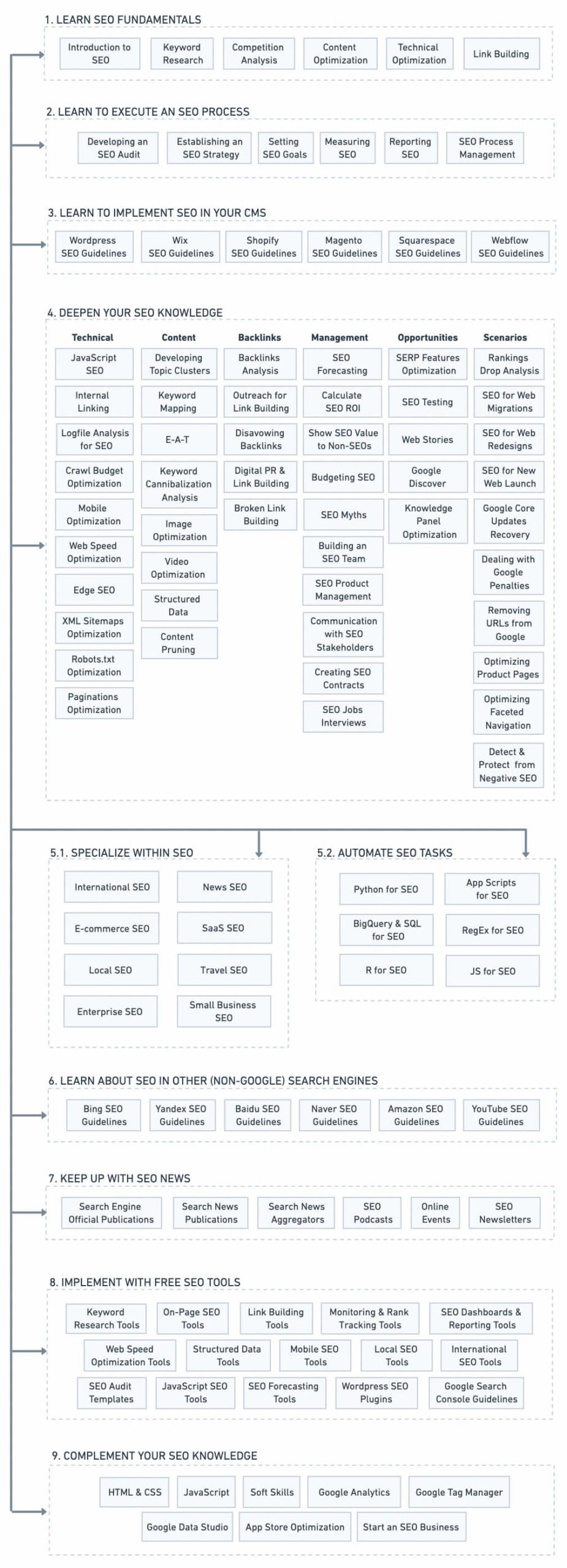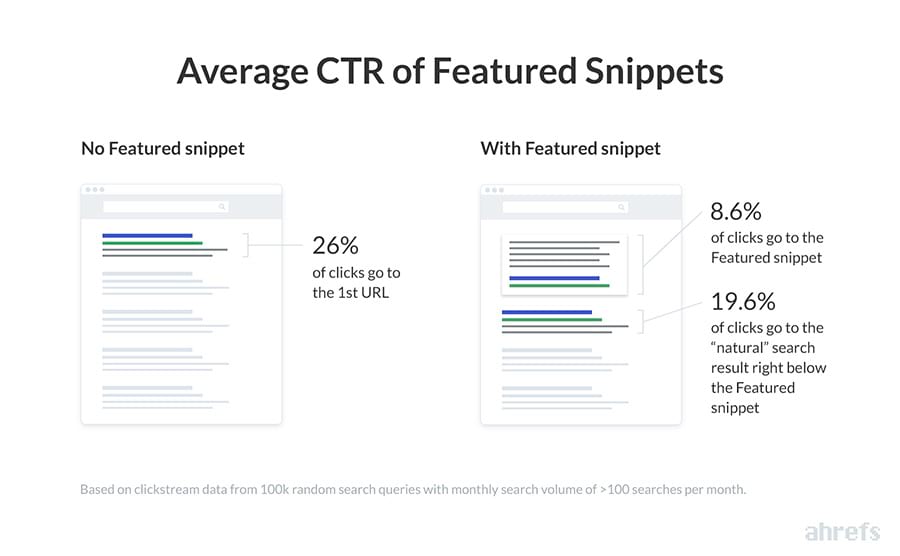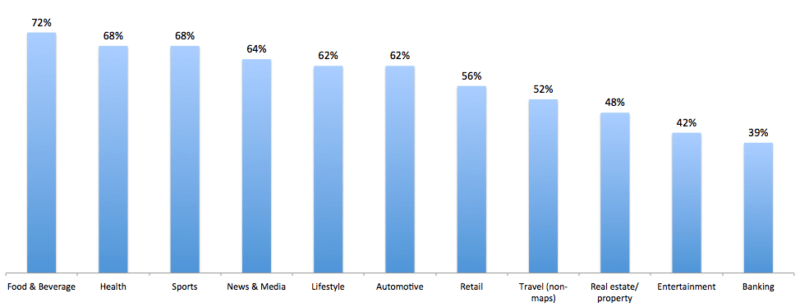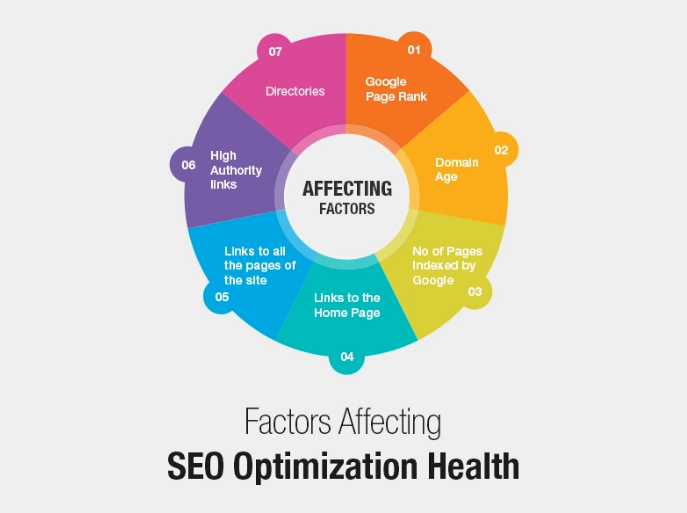![[infographie] SEO trends](https://charlesparent.net/wp-content/uploads/2018/03/prediction-tendance-seo.jpg)
[infographie] SEO trends
15 Simple Rules for SEO
The SEO Learning Roadmap
Take a look at the SEO learning roadmap below, featuring the different areas, from the basics of SEO, to the most common activities and phases of the SEO Process:
SEO Process:
- Seo Fundamentals
- Execute an SEO process
- Learn to implement SEO in your CMS
- Deepen your SEO knowledge
- Specialise within SEO
- Learn about SEO in other (Non-google) search engines
- Keep up with SEO news
- Implement with free SEO tools
- Complement your SEO Knowledge
More SERP Features:
To get your targeted keywords on the first page of search results is the goal of any SEO strategy but with increasing SERP features, even if you manage to get your site in the top 10 results, you might not get the amount of traffic you deserve.
Increasingly, SERP features (local packs, Knowledge panels, featured snippets and so on) are stealing organic clicks.
According to a study by Ahrefs, when there’s a featured snippet at the #1 position, it only gets ~8.6% of clicks (on average), while the page that ranks right below it will get ~19.6% of clicks (on average).
Featured snippets do reduce the overall number of clicks.
Mobile-First Index:
Now mobile matters more than desktop. Period.
More than 60% of searches now are done on mobiles. That is why Google is preparing to roll out the mobile first index.
If you have a responsive site or a dynamic serving site, you shouldn’t have to change anything. But if your site is not responsive, then you are going to hit soon with this update.
Increasing Voice Search:
More than 20% Of Mobile Searches On Google Are Made Via Voice and around 60.5 Million People In The US Currently Use Digital Assistants.
These numbers are huge and increasing day by day.
Though most of the voiced results are actually the results that are displayed a featured snippet. So, start focusing on getting into featured snippets for as many keywords as possible.
15 Simple Rules for SEO :
- Assess your page speed and improve where necessary.
- Use a CDN for your domain and DNS when possible to quickly serve your content.
- Build useful content that adds value.
- Ensure mobile responsiveness and usability across devices.
- Focus on enhancing the user experience.
- Supplement content with videos, audios or podcasts to increase engagements.
- Utilize Latent-Semantic Indexing for keyword diversity.
- Create relevant outbound links in your content.
- Focus on quality over quantity of links.
- Always market your content by leveraging trusted domains.
- Do not overuse ads above the fold.
- Create ungated super-guides with clear calls-to action.
- Do not try to do anything deceptive or sneaky.
- Leverage social media to build viral content that links back to your domain.
- Solicit influencers in your niche to help you supercharge your results.
The three Pillars of SEO:
Authority
Authority relates to the quality and volume of links created over time. The more authority a website has, the more link juice it can pass on. The Domain Authority (DA) and Domain Score (DS) are two ways that these companies quantify the amount of authority a domain has.
Content
The content of a site is crucial when it comes to ranking. Today, your content has to be excellent. It has to add value and engage the visitor. The more engagement, the more users will share that content, and in turn, the better it will rank. Invest heavily in your content and it will pay off in spades.
Indexed Age
The third and final pillar of SEO is the indexed age. Age does matter. While other factors can certainly trump age, in the very beginning, it’s important that you create a great track record with your domain’s content and the quality of the links pointing to that content. This happens over time. You can’t rush it. The indexed age simply refers to the original date that Google discovered the site or the content itself.
This is the perfect time to audit your SEO strategy and come up with some new changes for the new year.





